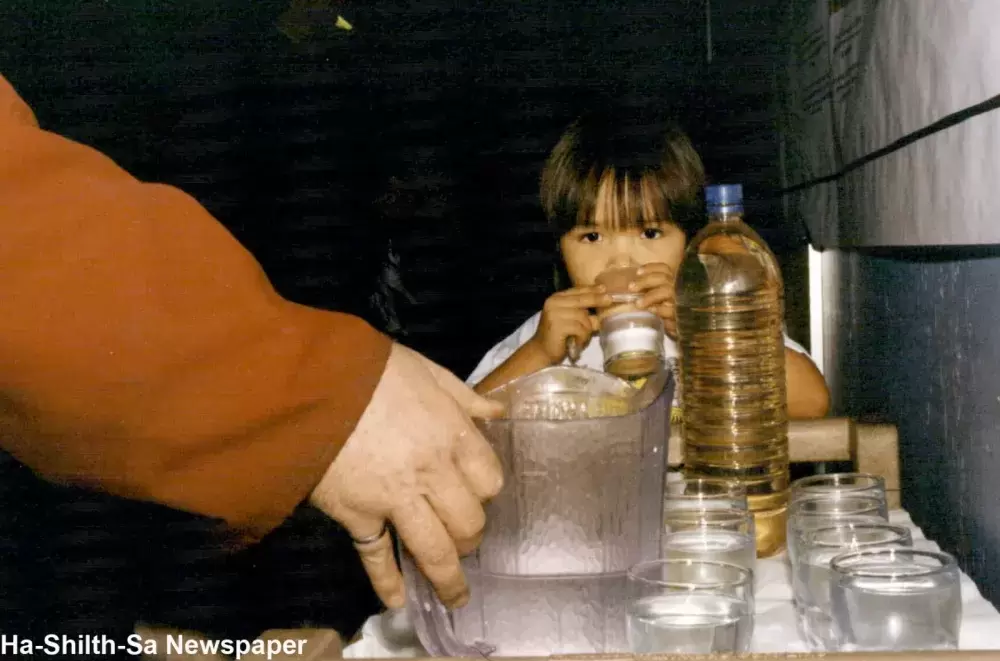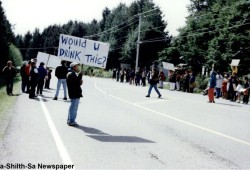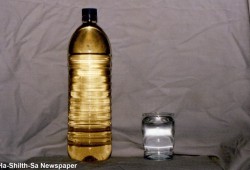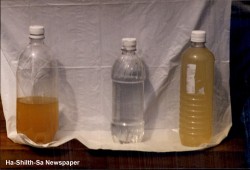First Nations people living on reserve who had water advisories for extended periods of time could be eligible for compensation if they lived somewhere listed in the settlement agreement.
According to the First Nations Drinking Water Class Action website, the courts have approved a settlement. The agreement is between Canada and certain First Nations, concerning members who were subject to a drinking water advisory that lasted at least one year between November 20, 1995, and June 20, 2021.
The settlement includes compensation for impacted First Nations and eligible individuals as well as commitments to fund the construction, operation, and maintenance of infrastructure needed to provide regular access to safe drinking water in their homes.
Launched in December 2019 by the Neskantaga First Nation, Curve Lake First Nation and Tataskweyak Cree Nation, the class action lawsuit is intended to address drinking water advisories in their communities and other First Nations across Canada.
The lawsuits target Canada’s failure to take all reasonable steps to ensure that First Nations communities have adequate access to safe drinking water.
Nuu-chah-nulth nations included in the settlement agreement are the Ehattesaht, Hupacasath, Huu-ay-aht, Pacheedaht, Toquaht, and Yuułuʔiłʔatḥ First Nations. These nations are ones that are known to have endured long-term drinking water advisories.
In order to make an individual claim, members of those nations must have lived on reserve during a specific window of time. According to the settlement agreement, the eligible Nuu-chah-nulth places and dates are as follows:
- Ehattesaht members living at Chinahkint during Jun. 23, 2006 to Aug. 15, 2008.
- Hupacasath members living at Klehkoot during Sept. 15, 2004 to Oct. 3, 2005.
- Huu-ay-aht members (no place named) during Oct. 1, 2001 to April 1, 2003, and July 30, 2004 to Nov. 18, 2005, and Aug. 24, 2015 to June 20, 2021.
- Pacheedaht members (no place named) from Aug. 8, 2008 to April 15, 2010.
- Toquaht members living at Macoah during March 27, 2002 and March 31, 2014
- Yuułuʔiłʔatḥ members living at lands formerly known as IR#6 and IR#7 during May 20, 2014 and Jun. 20, 2021
There are different types of compensation laid out in the $8 billion settlement, including:
- $1.8 billion in compensation to individuals and impacted First Nation(s);
- An additional $50 million allocated for eligible individuals who experienced specific injuries due to drinking water advisories that lasted at least one year between November 20, 1995, and June 20, 2021; These injuries could include gastro-intestinal illness, skin conditions, or cancer.
- $6 billion to support the construction, upgrading, operation, and maintenance of water infrastructure on First Nations land.
The amount of individual compensation is not yet known, but it will vary for each applicant based on the remoteness of their community and the type of water advisory they had. A chart on the First Nations Drinking Water Settlement website indicates that the payments would be in the range of $1,300 to $2,000 per individual, per year under drinking water advisory.
According to the First Nation Drinking Water Settlement website, eligible individuals may receive a payment for each year, or a portion of each year, that they lived under a long-term advisory that was in place November 20, 1995 to June 20, 2021. Eligible individuals must have resided in the impacted First Nation during that time, with the exception of those under the age of 18 who left their community to attend school.
Canada has agreed to make all reasonable efforts to support the removal of long-term drinking water advisories. Ottawa has pledged to spend at least $6 billion by March 31, 2030 to implement this commitment by funding the actual cost of construction, upgrading, operation, and maintenance of water infrastructure in First Nations communities.
Claims for individual damages submitted before March 7, 2023 will be assessed by the administrator, and eligible payments will be processed. Claims submitted between March 8, 2023, and March 7, 2024, will be assessed, and eligible payments will be processed after March 7, 2024. All claims for specified injuries compensation will be processed after March 7, 2024.
To be eligible for compensation claimants born before Nov. 20, 1995 must have lived on an Impacted First Nation during a long-term drinking water advisory that lasted continuously for a year or longer, anytime between November 20, 2013, and June 20, 2021.
If born on or after November 20, 1995, the claimant must have ordinarily resided on an impacted First Nation during a long-term drinking water advisory that lasted for a year or longer from Nov. 20, 1995 to June 20, 2021.
The reason for the two sets of dates is that there are legislative limitations in Canadian law that place limits on how long adults have to bring a lawsuit forward after an event happens.
Individuals can also apply for specified injuries compensation for ailments they experienced while complying with drinking water advisories.
Eligible individuals who died on or before Nov. 20, 2017 can have a claim made on their behalf by a family member or personal representative. Children are also eligible to apply, however, payments will not be made to the child directly, but will go to the legal representative that applied on their behalf.
Those making applications for minors or deceased loved ones must fill out representative application forms and may be required to submit additional information or documentation proving they are the appropriate representative.
The deadline for applications is March 7, 2024.
There are resources and supports available for Class Members, including support for individuals and First Nations filling out claim forms.
Information can be found on the First Nations Drinking Water website at https://firstnationsdrinkingwater.ca/
The website has links to online assessment tools so that applicants can test their eligibility. There are application forms on the website as well.
For questions about the claims process and assistance with the claim form, contact the administrator toll-free at 1-833-252-4220.
Claim forms can be found here: https://firstnationsdrinkingwater.ca/index.php/claim-forms/





